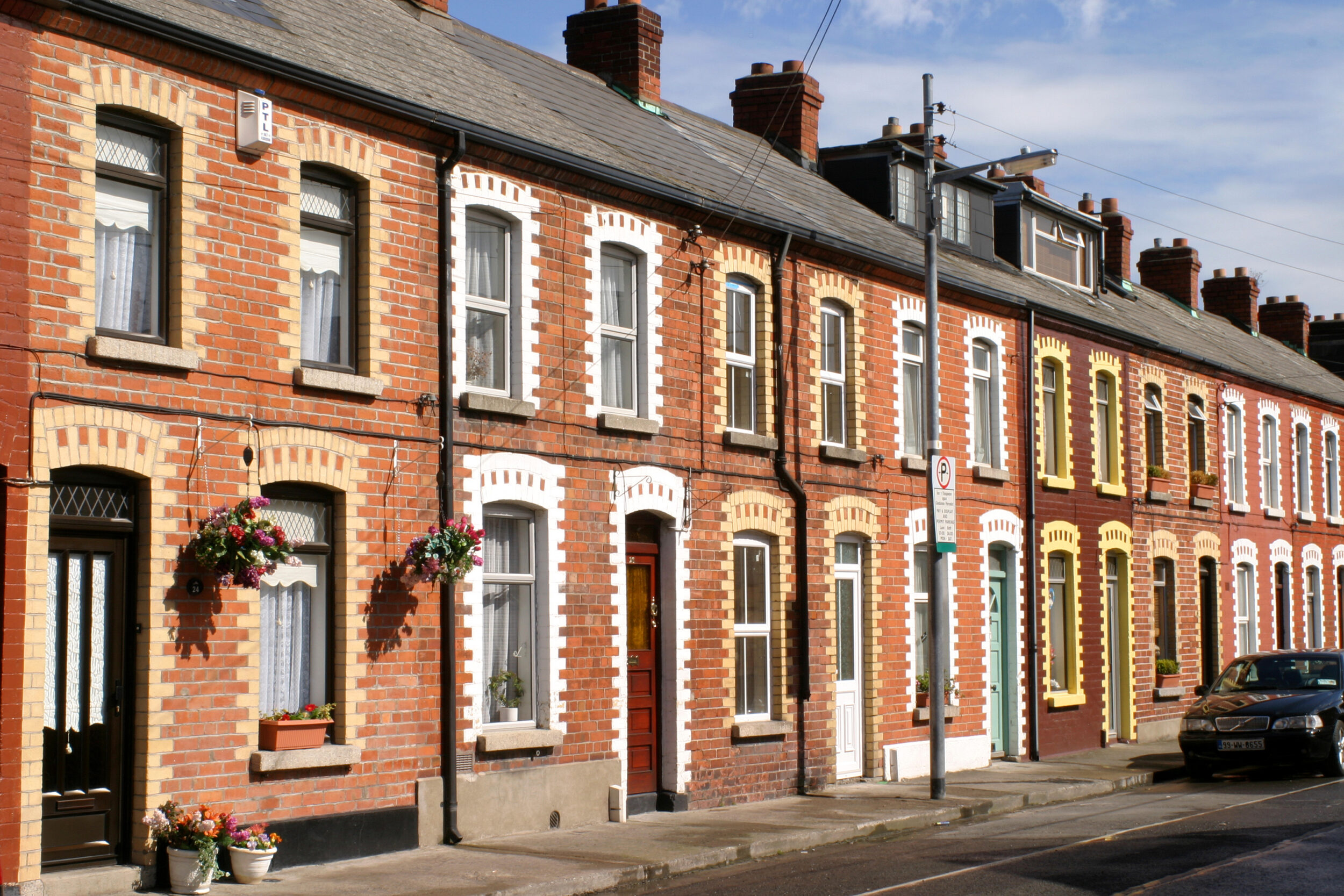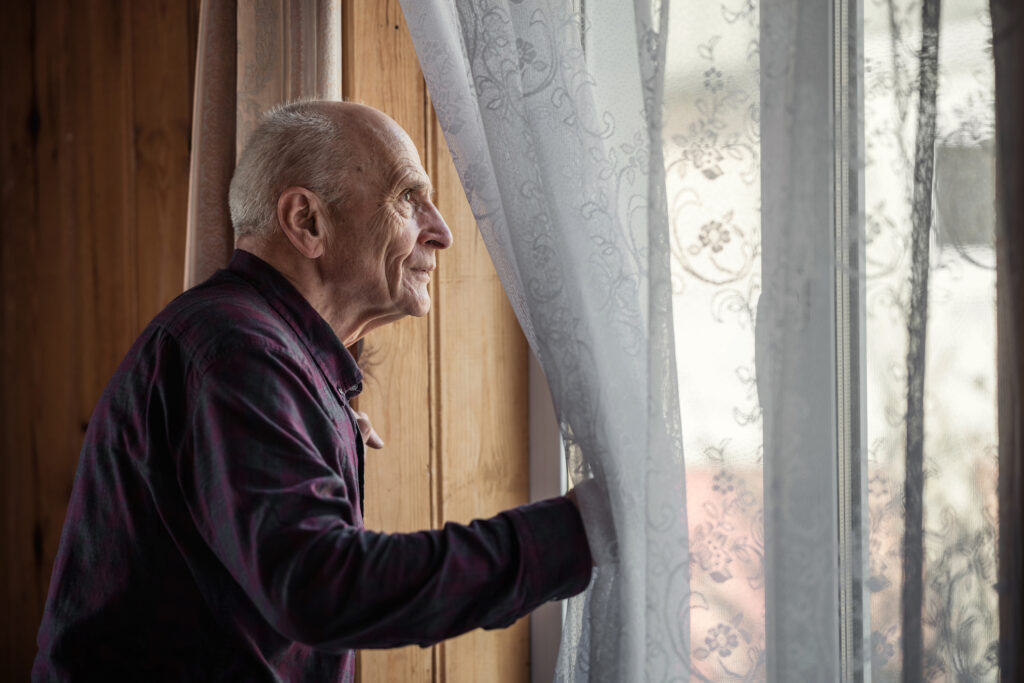
A housing manager’s view: Growing a property portfolio
In 2020 North East Lincolnshire Women’s Aid owned just two safe houses. Now it has 13 properties. Housing manager Joanna Newman explains how the charity has grown its portfolio so rapidly.
Can you talk us through your property journey?
When I came into post, North East Lincolnshire Women’s Aid had two properties. Then, in the middle of the first year of lockdown, a property was left to the charity in a supporter’s will. The owner of the neighbouring house also wanted to sell, so we bought that one too. We used our reserves to renovate both properties and to buy three more properties.
So, we’d gone from two properties to seven in quite a short space of time, but we wanted to grow further. We got a loan agreement for £500,000 from Charity Bank, with those seven properties as security. We used some of the loan to buy two more houses, which we put up as additional security so we could release the rest of the money. We’ve since bought one more property with that money and are about to complete on our 11th property, which will still leave us with enough to buy another two or three.
So, we’re hoping to be at 14 properties within the next few months.
That’s a pretty big leap, from two to 14 properties in around two years.
It is a big increase, but the demand is there. We’ve got more people needing support than we do houses, which is a very sad story to tell. So, we still need to grow further. We have no intention of staying where we are now.
Was it the demand that made you decide to expand your property portfolio?
We needed to grow for a number of reasons. There’s a severe lack of housing and lack of support for our families. They’ve come from abusive relationships. They’ve got no deposit, no job and no guarantor, so private landlords aren’t interested.
By owning more houses, we can support more families. They often pay over-the-top rents for what’s often sub-standard housing. Everybody is entitled to a good home, in a good area, that they can really be proud to call ‘home’.
Property is part of the service that needs to be in place to help people on their journey from domestic abuse. It helps break the cycle of women having to return to the family home because they don’t have another option. It gives them a safety net.
Your tenants will clearly benefit from their new homes, but how do you think the properties will benefit the charity itself?
Owning property is a way of investing in the charity. It keeps us secure because it gives us assets. We’re also getting a rental income. Having a reliable income stream is crucial.
Would you have leased properties if you hadn’t been able to buy them?
Eventually, we want to have a mix of leased and owned properties. We wanted to start with our own properties because deciding what happens, when it happens and how they are managed was priority. It gives us the chance to find our feet; we didn’t want to get lots of private landlords on board and find there were difficulties with how we wanted to do things. By starting with our own properties first, we can promote and celebrate our good practice.
What would you have done if you hadn’t got a loan?
We wouldn’t have been able to grow the service as quickly. We knew there was a lot of demand and had no way of extending the project without finance. So far, that decision has paid off. All the properties are tenanted and we’ve had some really good success stories.
What made you go to Charity Bank for your loan?
Women’s Aid have worked with them previously and had a very good experience. Also, we share the same values, which is really important to us.
How did you find the process of taking out a loan?
The process was really easy. Our main point of contact is Jeremy Ince (Regional Manager), who’s been absolutely fantastic. He’s coped with me emailing and ringing him with questions, “What do we do with this?” and “What do we do with that?” Once everything had been agreed, we mainly worked with Sharon Gooch (Lending Services Manager), who’s also been really helpful.
I came to North East Lincolnshire Women’s Aid from a property background. So, I’ve always been quite involved in purchasing, sales and property management. Because of that, I’ve been a bit more involved in the refinancing side of the project than I otherwise would have been. So, Charity Bank probably heard from us more than they normally would have, just because we wanted to push things along so tenants could move in as soon as possible.
Were there any challenges that cropped up that you weren’t expecting?
With the loan itself, it’s all been smooth sailing, but the housing market has caused additional disruptions. Prices have risen and it’s very much a seller’s market at the moment. While we want the loan to result in an extra seven properties, we might only end up being able to afford six because of this
What should charities be aware of before they start the loan process?
We think it’s important to have a clear vision. We knew what we wanted to achieve, so we talked that through with Jeremy and were able to bounce ideas off him before we actually went ahead with the application. You need to know who you want to help, what your target market is, what you can charge in rent and so on, but most importantly it is sustainable.
For us, we want to provide a good level of service and quality accommodation, while keeping rent affordable, so we needed to make sure the figures added up and that we wouldn’t have any surprises along the way.
How long do you expect families to live in your properties?
It depends on each tenant’s needs. We have a refuge in place for emergency accommodation already so will use these new properties for move-on housing. They’re available for as long as the women and children need them. There’s no maximum timescale for tenancy.
But what we find is that women re-build their lives and maybe start new, healthier relationships. Life starts to take a bit of a different turn, and there naturally comes a point where they feel it’s time for them to move on. They’re not in the situation they were.
As an example, I recently spoke to a woman who moved into one of our properties with her children a year ago. At the time, she said, “This is my forever home; I’m really happy here.” We’d never push for her to move out, but we’ve worked with her over the year, and helped her to save some money. And now she’s decided that she’s ready to move on. She said, “When I moved in, I couldn’t see past that point. This was our safe space where we could get back on our feet and rebuild our lives. But I know now that there’s somebody in the situation that I was in a year ago. She needs this house more than I do, and I’m ready to move onto my next step.”
That’s what this is all about is – getting people ready for the next chapter, where they can stand on their own two feet.
Charity Bank has helped numerous charities to grow their property portfolio. If you would like to explore finance options for your charity, social enterprise or community group, contact us by emailing [email protected]
About Charity Bank
Charity Bank is the loans and savings bank owned by and committed to supporting the social sector. Since 2002, we have used our savers’ money to make more than 1280 loans totalling over £500m to housing, education, social care, community and other social purpose organisations.
Nothing in this article constitutes an invitation to engage in investment activity nor is it advice or a recommendation and professional advice should be taken before any course of action is pursued.


